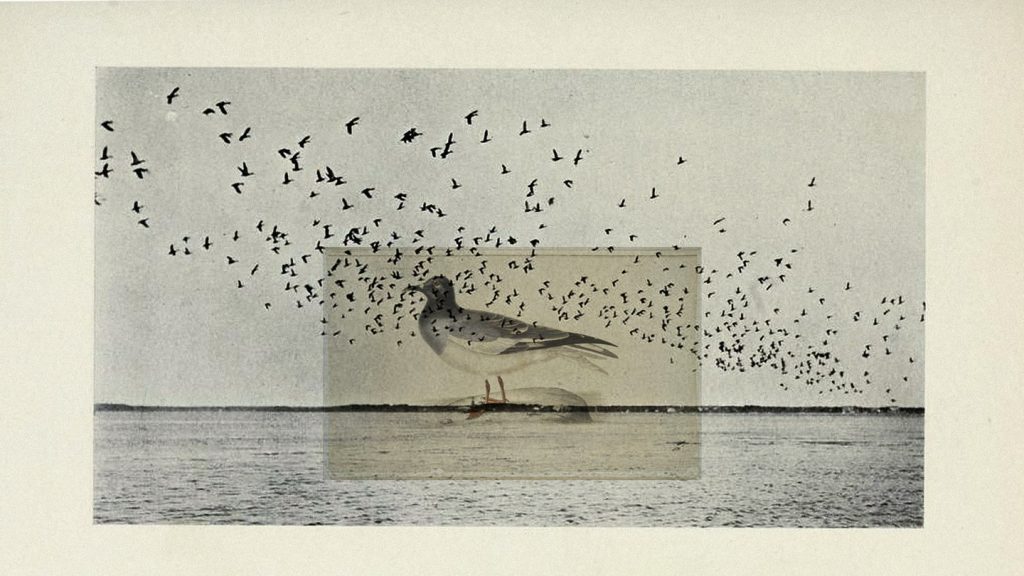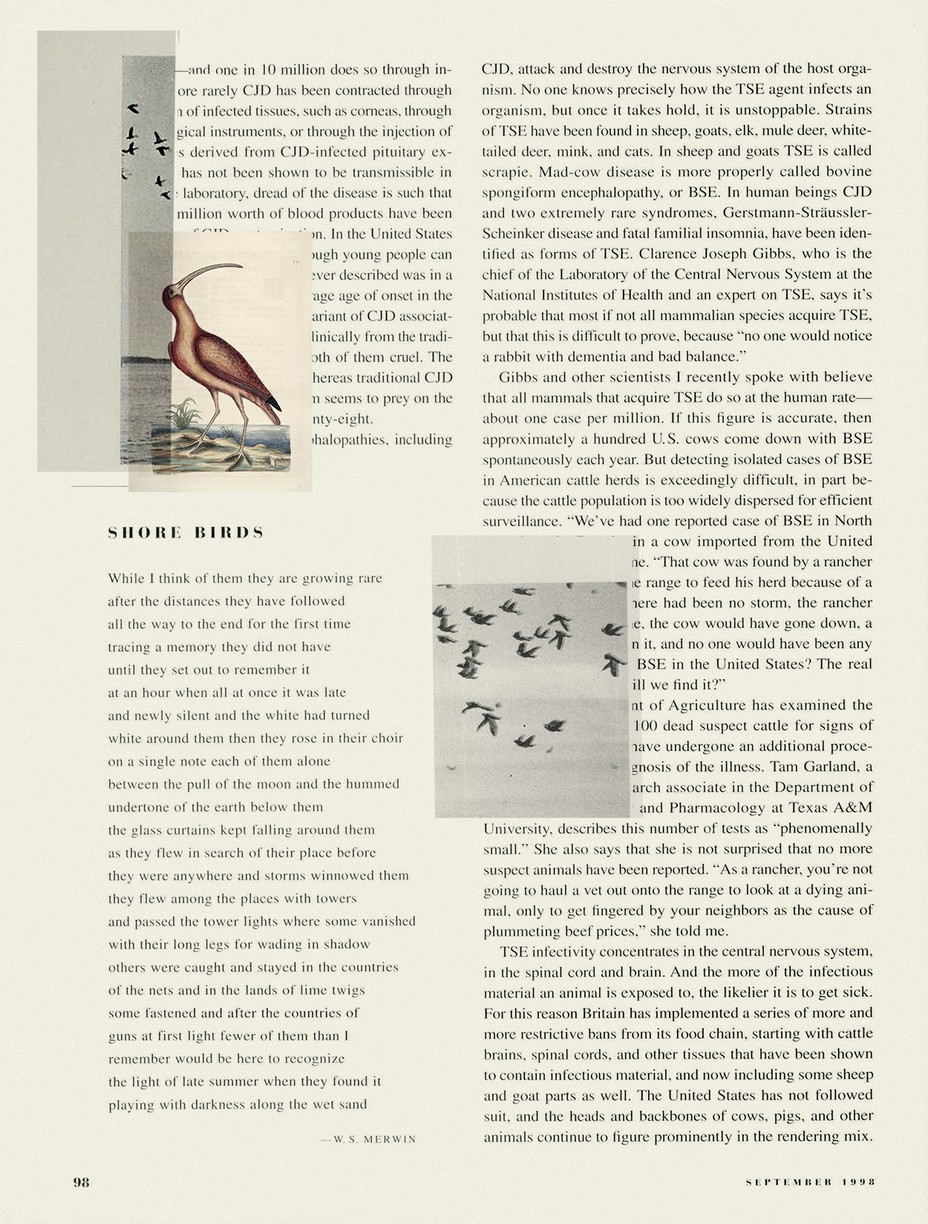Shore Birds
2 min read
The poet W. S. Merwin wrote a lot about birds: birds singing, birds dying, birds “whirled in a rising cloud … dissolving, streamering out.” This poem, “Shore Birds,” was included in Merwin’s 2005 National Book Award–winning collection called, yes, Migration.
Merwin, who died in 2019, was a devoted conservationist distraught over the destruction of the planet; “Shore Birds,” about a migrating flock, captures his profound sense of loss. “While I think of them they are growing rare,” he writes. After passing through a line of gunfire to the peaceful late-summer shore where they’ve long been headed, the poem’s group has lost members. Merwin wrote about other dwindling species, as well, but not with the same persistence. What was it about the squawking feathered creatures that so moved him?
Merwin often wrote about birds in the collective: the V of geese moving as one, driven by some shared instinct; or flying upward in a wild rush, united in song. He seems at times to be contrasting that beautiful oneness with the ugliness and division of man: the ones responsible for climate change, for the guns that shoot down the shore birds; the ones who work not in coordinated chaos but in calculated, systematic violence. Some of his poems—especially in his collection The Lice, published during the Vietnam War, which Merwin vehemently opposed—radiate fury with humankind. “Gray whale,” he writes in “For a Coming Extinction,” “Now that we are sending you to The End / That great god / Tell him / That we who follow you invented forgiveness / And forgive nothing.”
As Merwin grew older, though, he began to soften toward humanity. “One can’t live only in despair and anger without eventually destroying the thing one is angry in defense of,” he said, explaining how his perspective had changed since The Lice. “The world is still here, and there are aspects of human life that are not purely destructive.” I wonder, then, if it’s intentional that the term migration has a double connotation; it makes me think first not of birds but of people. Perhaps he was implying that the two have something in common: each capable of making great and dangerous journeys, traveling together to a point they can’t yet see.

You can zoom in on the page here.



